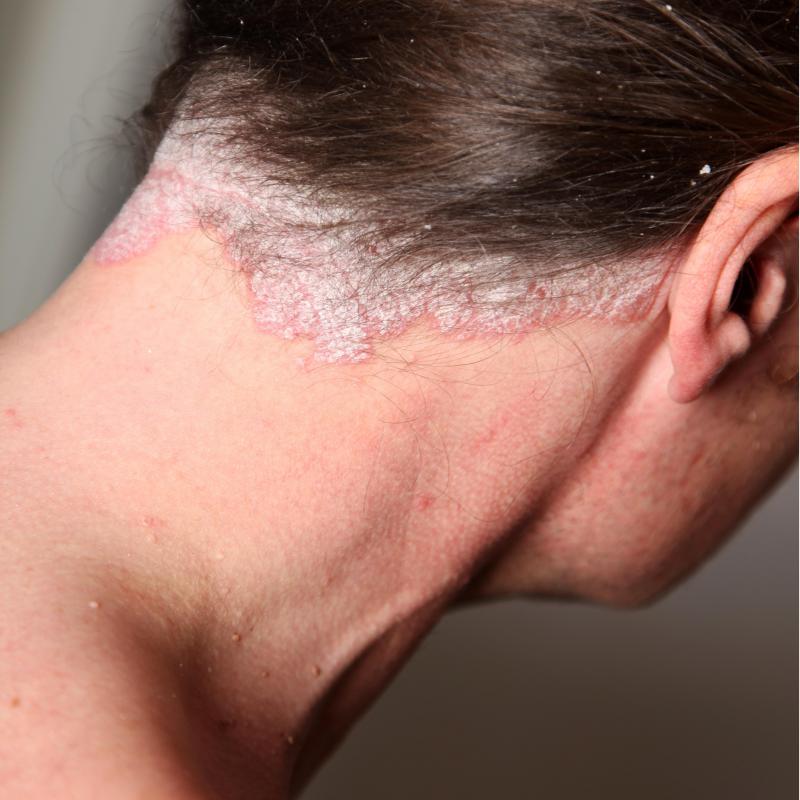At WiseGEEK, we're committed to delivering accurate, trustworthy information. Our expert-authored content is rigorously fact-checked and sourced from credible authorities. Discover how we uphold the highest standards in providing you with reliable knowledge.
What Are the Different Types of Psoriasis?
There are numerous types of psoriasis, a condition that causes red patches, inflammation, and discomfort in different areas of the body, particularly the skin. Plaque, guttate, and pustular psoriasis can all affect diverse areas and tend to vary in severity, while inverse psoriasis typically affects only folds in the skin. This skin disorder can also occur in specific areas of the body, including the scalp and nails, and can be especially severe, as found with erythrodermic psoriasis.
Plaque psoriasis is one of the most common varieties. The red, itchy scales can occur anywhere on the body, and can cause the skin to split or bleed in severe cases. Depending on how bad the condition is, this type of psoriasis can be simply unsightly or incredibly painful.

Of all of the types of psoriasis, only one is considered not chronic, as it is brought on by an infection and will typically disappear once the infection is gone. Known as guttate psoriasis, in most cases, breakouts similar to those found with plaque psoriasis are concentrated on the arms, legs, and torso, although scales may occur on the scalp. The most common cause of guttate psoriasis is strep throat, and, while it typically goes away with the illness, there is a risk of the condition coming back with subsequent infections.

Pustular psoriasis is slightly different from other types of psoriasis as it causes blisters filled with pus to develop on the skin rather than just a rash. In many cases, breakouts are painful to the touch, although they tend to only last for a few days. Unlike many other types of psoriasis, the pustular variety can have other severe side effects outside of the skin condition, including flu-like symptoms.
When this condition occurs in folds of the skin, such as the genitals, underneath breast tissue, and in the bends of the arms or legs, it is known as inverse psoriasis. This variety typically appears as a large, red patch of skin, and the patches usually do not shed. It can be extremely uncomfortable, as most of the common breakout areas for inverse psoriasis receive a lot of friction during the day.
The types of psoriasis are also often classified by where on the body the condition appears. Nail psoriasis can occur in the nail beds of the hands or feet, and cause the nails to grow awkwardly, potentially fall off, or fall apart in severe cases. Scalp psoriasis is concentrated on the head, often looking like severe dandruff to outsiders, and is often extremely itchy and irritating, although milder cases may only be noticeable due to the scales shedding.
While each type of psoriasis can vary greatly in severity, erythrodermic psoriasis is considered the most debilitating form of this skin condition. Scales and sores typically cover most of the body and are often extremely painful. The scales usually shed in very large pieces, and the condition itself may cause a person to feel uncomfortably hot or cold, as well as increase one’s heart rate.
AS FEATURED ON:
AS FEATURED ON:












Discussion Comments
I have a friend who has the plaque psoriasis, but unlike many people, she has had a terrible time even getting it under control. She has tried everything in the world: gluten-free, whole foods, vegetarian diets, medication and even participated in a clinical trial for this new drug. She has not gotten much relief.
The current thinking is that this kind of psoriasis is very much an auto-immune disorder, and my friend sees a rheumatologist for her condition, among her many specialists.
She has been on methotrexate and seems to get more relief from this than anything else. Psoriasis is no fun and should never be taken lightly.
Post your comments